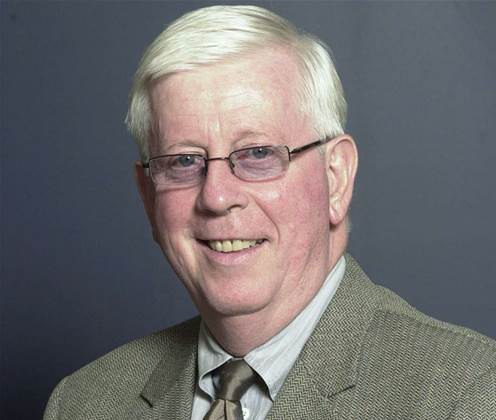Stratton believes Australia can learn a lot from the Swedish trial.

He cites several reasons why the Swedish trial will be successful.
1. The project is national
As a nation of nine million people, Sweden's National Government managed to win provincial governments over to the virtues of the project, Stratton said.
In Australia, by contrast, "you've got Federal and State Governments with an interest in this, so there is no clear funding or management," he said.
"When it comes to developing an Electronic Health Record, there needs [to be] an agreement of the road forward. We are only a country of 20 million people - we need to set the way forward at national level and have the States get on board with national initiatives.
"What we need in Australia is a national commitment," he said.
2. The project is driven by strong leadership
Sweden's eHealth system is being funded through an apolitical private/public organisation called Carelink, set up specifically to procure and manage the system.
The beauty of Carelink, Stratton said, is that the healthcare industry can be confident it would continue to exist regardless of changes in Government.
"Carelink also put on smart people to advocate the Government's commitment and carry it through," Stratton said.
"The Australian Government needs to find a champion - someone seen as credible and committed to the project, for the good of healthcare providers and citizens."
Stratton believed the Australian Medical Association (AMA) and the National Electronic Health Transition Authority (NEHTA) both need to be involved.
"But in saying that, we can't go on to more committees for the rest of time," he said.
NEHTA's initial goals around standards are "important" he said, but things have to move along.
"There'll be new standards evolving before we agree on what we're using," he said. "We need to progress, we need to move on, we need to have a group committed to getting this up and running.
"NEHTA needs to be more than a standards organisation. It needs to be an organisation committed to getting it up and running in a given period of time. There needs to be a commitment to say, it will be finished by x date."
3. The system was de-politicised and sold on its benefits
In Australia, Stratton said, we need to "de-politicise" the eHealth issue.
"Healthcare is a motif," he said. "It can be a good thing to be on the bench about or a bad thing. It's an emotive issue, a rollercoaster."
Stratton said the Swedish Government "sold" the electronic health records project to its citizens "on the basis of it being advantageous to them."
"They have promoted it as secure and accountable, that you can look at it like a bank statement," he said.
"It was clearly understood what the aims were. They built a lot of confidence into the system and have been very consistent in their approach."
4. The Swedish system is modular, but comprehensive
Stratton applauded the Swedish Government for extending its electronic health record system into both primary and acute care.
"Doing it that way, they have a huge percentage of those systems that collect health information locally feeding into the system," he said.
"It is no good putting up an Electronic Health Record for just the acute care sector - you need support of both private and public and of primary care. It has to be a commitment from all sides.
"If there is less value to the user and the patient, it is less likely to be used and be successful."
5. The Swedes got on with the job
"They stopped talking about it, and actually went and did it," Stratton said.
"They had a schedule of dates and through the whole process there was never more than a delay of two or three days.
"That keeps both the vendor and their own people focused on it. Citizens and the healthcare industry get confidence it will be done properly. There was never that feeling of 'oh no, not another pilot'."
Australian authorities need to make some kind of start, he reiterated.
"You are never going to find a system that 100 per cent satisfies the visions of all stakeholders," he said.
"Stakeholders have to be flexible, they have to let a system evolve over time. We need to get started today with what's the most important thing we need to address with an Electronic Health Record - be it lab results or medication summaries - get those things up and running and lets then have a plan to evolve the systems over a period of a time."
Stratton concluded that eHealth has no technology barriers left, just social and political ones.


_(28).jpg&h=140&w=231&c=1&s=0)
_(20).jpg&h=140&w=231&c=1&s=0)
.png&h=140&w=231&c=1&s=0)





_(26).jpg&w=100&c=1&s=0)
 iTnews Executive Retreat - Security Leaders Edition
iTnews Executive Retreat - Security Leaders Edition












_(1).jpg&h=140&w=231&c=1&s=0)



